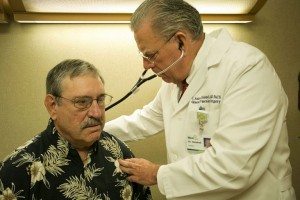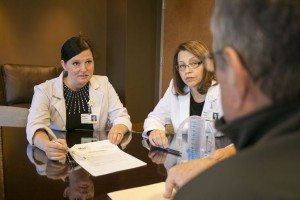MORGANTOWN, W.Va. — Mon Health is hoping a new approach to surgery will help cut down on the risk of opioid addiction.

“We’re going in to take out part of the colon because there’s a cancer there, we still take it out the same way,” Mon Health general surgeon Dr. C. Andrew Heiskell said. “We take out lymph nodes, we explore the abdomen. We do all of that the same way as we’ve done in the past. The only difference is everything else is changed.”
Using different pre-surgery and post-surgery methods, Heiskell said they’ve significantly cut down on the need to prescribe opioids to surgical patients. The previous method, he said, was easy for the doctor — but not practical for the patient.
“What we were doing is we were starving them before surgery, we were dehydrating them before surgery, we are taking a knife and slicing them open, we are cutting out part of their bowel, paralyzing them, giving them narcotics, we are breathing for them, then we were drowning them with fluids, and then more narcotics to paralyze their bowel,” he said. “Then we are asking them to get better.”
The difference is pretty simple: do the exact opposite.
“We tell them that they’re going to have pain, and all we ask is they tolerate pain up to a ‘four’ on a scale of one to ten,” Heiskell said. “And if it’s more than four, we will give them pain medication.”
Before the surgery, Heiskell and his team begin employing Enhanced Recovery After Surgery (ERAS). The pre-operative portion involves patient counseling, increasing nutrition intake, avoiding narcotics, and encouraging light exercise — like walking — before and after surgery. The pain is managed through local anesthetics or a nerve block. After the surgery, the initial prescription is simply acetaminophen followed by ibuprofen if needed.
“Now occasionally, their pain will be so severe they have to take [opioids],” Heiskall said. “But we have talked to them so much about avoiding it, they take very little if they have to take anything.”
Carla Dunaway, a nurse practitioner with Mon Health, said the pre-operation education counseling is vital.
“We go over the pain management so they know the expectations for pain,” she said. “And they also know the pain is going to be taken care of, what medications to expect to have, and the medications post-operative.”
On colon surgery, they’ve cut recovery time from between five and seven days to between three and five days by implementing 13 of the 17 ERAS.
“And now the staff, seeing how well the patients are doing, are in line and anxious to participate,” Dunaway said.

The doctors commitment to these changes have further inspired the patients, Dr. Heiskell said.
“It is very well tolerated,” he said. “We’ve had people wake up and have no pain at all. We have many people who have gone the entire course of hospitalization without any narcotics.”
“It’s easiest for the surgeon just to write a prescription for a narcotic. That’s easy for us, and that’s easy for the patient to have one pill, but the patients don’t usually realize the side effects.”
At a time when opioid addiction has reached epidemic status, costing the state and the country billions of dollars, and is claiming more West Virginian lives than any other state, Dr. Heiskell said the objective is clear.
“Our goal is no narcotics: before or during or after surgery.”


